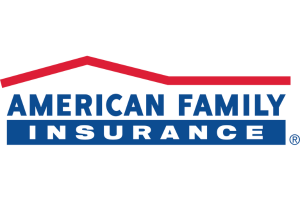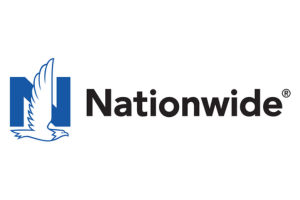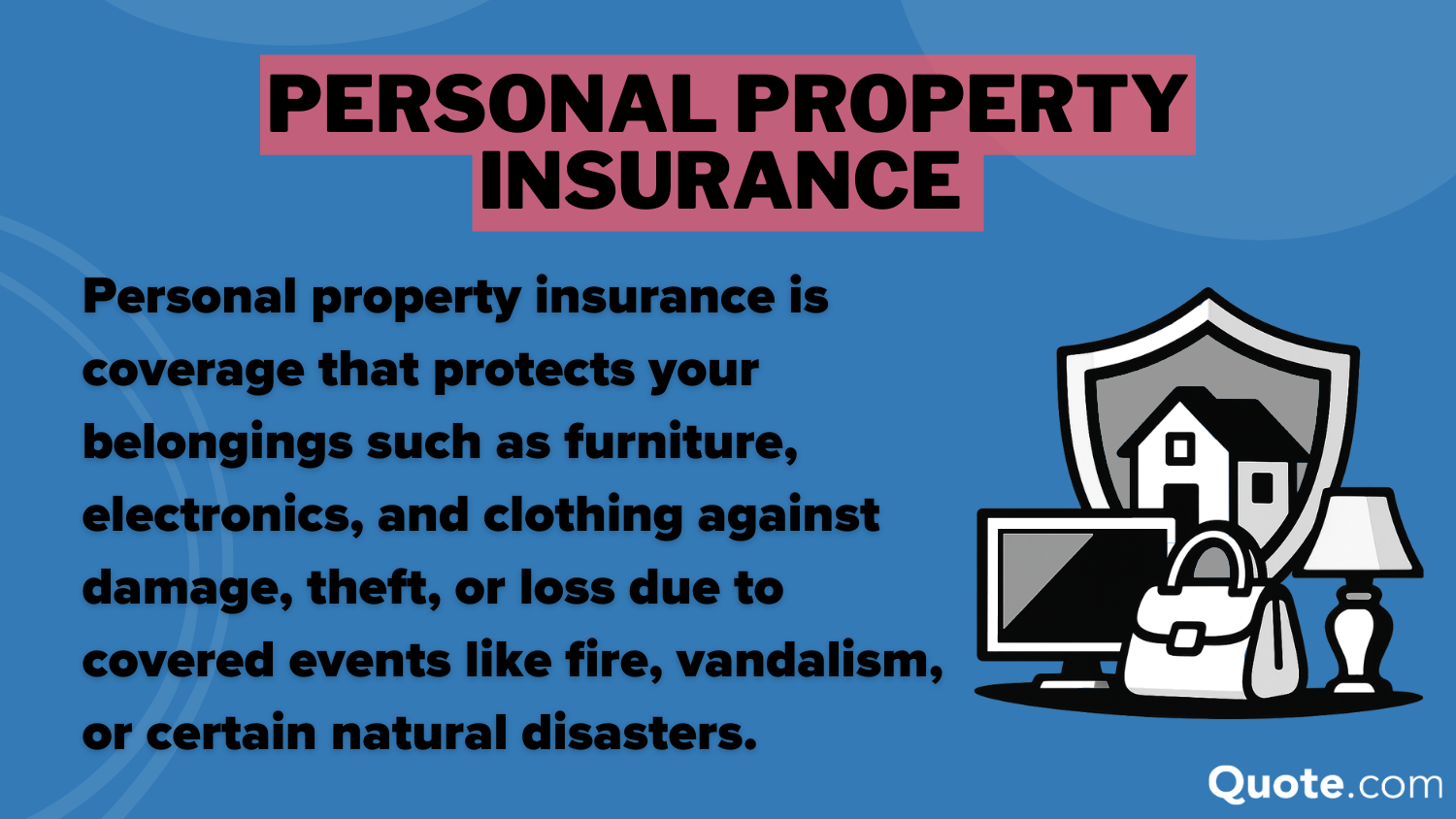Best Home Insurance for High-Value Properties in 2026
Amica, Erie, and State Farm have the best home insurance for high-value properties starting at $85 per month. High-value homeowners insurance carriers offer quick claim payouts after major losses, guaranteed replacement cost to rebuild luxury finishes, and higher limits that protect million-dollar estates.
Read more Secured with SHA-256 Encryption




Save Money by Comparing Insurance Quotes
Compare Free Home Insurance Quotes Instantly




Table of Contents
Table of Contents


Insurance Content Creator
Lia Vergin develops both video and written content across all lines of insurance, with a primary focus on auto, home, and life coverage. She is dedicated to helping consumers better understand and navigate their insurance options. Driven by a passion for saving money and finding great deals, she is committed to creating clear, engaging, and practical content that empowers readers to make confident...
Lia Vergin


Managing Editor
Daniel S. Young began his professional career as chief editor of The Chanticleer, a Jacksonville State University newspaper. He also contributed to The Anniston Star, a local newspaper in Alabama. Daniel holds a BA in Communication and is pursuing an MA in Journalism & Media Studies at the University of Alabama. With a strong desire to help others protect their investments, Daniel has writt...
Daniel S. Young


Insurance Claims Support & Senior Adjuster
Kalyn grew up in an insurance family with a grandfather, aunt, and uncle leading successful careers as insurance agents. She soon found she had similar interests and followed in their footsteps. After spending about ten years working in the insurance industry as both an appraiser dispatcher and a senior property claims adjuster, she decided to combine her years of insurance experience with another...
Kalyn Johnson
Updated October 2025
The best home insurance for high-value properties comes from Amica, Erie, and State Farm, with rates starting at $95 per month and benefits designed to protect estates worth millions.
- Amica is the top pick for expert estate-level claim handling
- High-value properties gain added protection with higher liability coverage
- Specialized policies safeguard guest houses, pools, and rare assets
Amica helps homeowners recover quickly with expedited claims service after major losses. Erie offers guaranteed replacement cost, making sure luxury finishes and custom designs are fully rebuilt.
State Farm adds higher dwelling limits that secure large estates against financial gaps. Together, these companies provide the kind of protection standard policies simply can’t match for high-value homeowners.
Top 10 Companies: Best Home Insurance for High-Value Properties| Company | Rank | Claims Satisfaction | Security Discount | Best for | Jump to Pros/Cons |
|---|---|---|---|---|---|
| #1 | 679 / 1,000 | 5% | Claims Excellence | Amica | |
 | #2 | 674 / 1,000 | 9% | Strong Value | Erie |
| #3 | 643 / 1,000 | 17% | Reliable Service | State Farm | |
| #4 | 641 / 1,000 | 10% | Premium Coverage | Nationwide | |
 | #5 | 638 / 1,000 | 29% | Historic Homes | American Family |
| #6 | 634 / 1,000 | 10% | Innovative Solutions | Progressive | |
| #7 | 631 / 1,000 | 10% | Customer Support | Allstate | |
| #8 | 617 / 1,000 | 10% | Luxury Homes | The Hanover | |
| #9 | 609 / 1,000 | 10% | Asset Protection | Farmers | |
 | #10 | 596 / 1,000 | 10% | Flexible Options | Liberty Mutual |
Secure coverage from the best homeowners insurance companies for high-value properties by entering your ZIP code into our simple quote comparison tool.
Where to Get the Best High-Value Home Insurance Rates
Insurance costs for high-value homes increase as coverage rises, but what really matters is how those costs escalate from one level to the next. Some insurers keep their rate increases relatively modest, which makes it easier to budget long-term.
Others raise prices more noticeably at higher coverage levels, which may indicate the inclusion of additional services or more comprehensive protection.
High-Value Property Insurance Monthly Rates by Dwelling Coverage| Company | $500K | $750K | $1M | $2M |
|---|---|---|---|---|
| $92 | $97 | $101 | $182 | |
 | $90 | $95 | $98 | $168 |
| $98 | $103 | $106 | $198 | |
 | $95 | $100 | $103 | $186 |
| $88 | $92 | $95 | $165 | |
 | $91 | $96 | $100 | $180 |
| $97 | $102 | $105 | $194 | |
| $94 | $99 | $102 | $184 | |
| $96 | $101 | $104 | $190 | |
| $93 | $97 | $99 | $172 |
At $2M in coverage, the difference is clear, as Farmers comes in at the lowest rate of $165 a month, while Amica reaches $198, illustrating the significant impact your choice of insurer can have on costs. The way rates are structured reveals a great deal about how each insurer perceives high-value homes, particularly when seeking the best home insurance for luxury homes.
Companies with gradual increases, including some of the cheapest home insurance companies, tend to work well for individuals who prefer consistent monthly costs without unexpected expenses.
Predictable increases across dwelling limits help homeowners budget confidently without surprise spikes in premiums.
Kristine Lee Licensed Insurance Agent
When rates climb faster, it’s often because insurers add features like specialized endorsements or stronger claims support, which can be a significant advantage if your home has unique or luxury features.
For most homeowners, it’s less about chasing the cheapest price and more about finding the right mix of stability, service, and coverage.
Credit Score Impact on High-Value Insurance Rates
When it comes to high-value home insurance, your credit score does play a role, but the way each company treats it makes the real difference. Some barely shift their rates if your score drops, which makes your costs feel a lot steadier.
Others charge noticeably more as credit drops, showing they rely heavily on financial history when setting rates. For you as a homeowner, that means credit doesn’t just matter for loans; it also affects how much you end up paying for coverage.
Home Insurance Monthly Rates by Credit Score| Company | Excellent (800+) | Good (670–799) | Fair (580–669) | Poor (<580) |
|---|---|---|---|---|
| $94 | $97 | $102 | $108 | |
 | $91 | $94 | $98 | $105 |
| $100 | $103 | $108 | $115 | |
 | $96 | $99 | $104 | $110 |
| $90 | $93 | $97 | $103 | |
 | $93 | $96 | $100 | $107 |
| $99 | $102 | $107 | $114 | |
| $97 | $100 | $105 | $112 | |
| $98 | $101 | $106 | $113 | |
| $95 | $98 | $103 | $109 |
The patterns behind these rates reveal a great deal about how insurers perceive risk. When the price difference between excellent and poor credit is minor, it suggests that the company is weighing other factors, such as claims history or safety features, more heavily.
Bigger jumps often mean the insurer is more cautious, which could mean higher premiums but also stricter underwriting. The takeaway for homeowners is simple: understanding how your credit impacts pricing makes it easier to compare options and find the best home insurance for expensive homes without getting unfairly overcharged.
Read More: Is home insurance required?
Biggest Risks Impacting High-Value Home Insurance Rates
Older houses often carry higher premiums because outdated systems or materials can make repairs more expensive. Luxury or high-value homes also cost more to insure, simply because the potential payout is significantly higher.
Where you live matters a lot, too; moving from a low-risk area to a high-risk weather zone can raise premiums by around $15 a month, which shows just how much location can influence what you pay.
Home Insurance Monthly Rate Increases by Risk Factors| Factor | Risk | Premium | Increase |
|---|---|---|---|
| Property | Standard Home | $120 | NA |
| Property | Older Home | $126 | $6 |
| Property | High-Value Home | $135 | $15 |
| Weather | Low Risk Area | $122 | $2 |
| Weather | Moderate Risk Area | $129 | $9 |
| Weather | High Risk Area | $140 | $20 |
These patterns illustrate how insurers assess both the property itself and the associated financial risk, making it essential to understand the types of homeowners’ insurance policies when comparing options, particularly for high-value home insurance in California, where rebuilding costs can be significantly higher than the average.
Luxury properties also face bigger stakes when it comes to risk. Custom finishes, rare materials, and expensive personal items make them more costly to repair or replace after a loss, which is why insurers typically charge a higher premium for this level of protection.
Additionally, insuring a high-value home can add approximately $10 more each month compared to a standard property, highlighting how insurers account for the greater financial exposure.
For this reason, many homeowners seek the best homeowners’ insurance for high-value homes to ensure that these unique details are fully protected.
Free Home Insurance Comparison
Compare Quotes From Top Companies and Save
Secured with SHA-256 Encryption
Picking Out High-Value Home Insurance Coverage Options
High-value homes often need more than a basic home insurance coverage plan, especially when it comes to rebuilding.
Replacement cost coverage helps because it pays for a complete rebuild at today’s prices, even if inflation or material shortages drive costs up.
Without replacement cost, payouts may fall short of real costs. For instance, restoring custom stone could run into millions.
Jeff Root Licensed Insurance Agent
Without it, restoring imported stone or custom wood finishes could cost you a fortune out of pocket. Unique details, such as wine cellars, antique chandeliers, or smart-home systems, often require special coverage as well.
Otherwise, fixing or replacing them after a loss could be a costly surprise. Personal property coverage is also essential, as items such as fine art, diamond jewelry, or wine collections often exceed the limits of a basic policy.
By raising those limits, a $100,000 painting or a $50,000 watch collection won’t be limited to a $10,000 cap. With higher liability limits, you’ll have extra protection to cover medical bills and legal fees if someone gets hurt on your property.
And if you own more than one home, endorsements can extend that same level of protection to your vacation or secondary residences. Choosing high-value homeowners insurance coverage ensures that all these protections are aligned with the unique risks and higher rebuilding costs associated with luxury homes.
Recommended Coverage Limits for High-Value Home Insurance
When you shop for the best homeowners insurance for high-value properties, it’s not just about who throws out the biggest coverage limit. What really matters is how those limits are set up and whether they actually work for the type of home you own, which is why it helps to compare homeowners’ insurance quotes before deciding.
Some plans are designed to cover every inch of a large estate, while others focus more on protecting valuables such as jewelry, artwork, or custom features. The trick is finding coverage that aligns with what matters most to you.
High-Value Property Insurance Provider Comparison| Company | Program | Specialty | Limit |
|---|---|---|---|
| Premier Client Group | High-value endorsements | $5M | |
 | DreamSecure Deluxe | Add-ons for luxury homes | $4M |
| Platinum Choice Home Coverage | Service for high-value homes | $5M | |
 | ErieSecure Select | Coverage for valuable items | $3M |
| Farmers Premier Home | Premier luxury home options | $5M | |
 | Private Client Group | Extended replacement coverage | $8M |
| Nationwide Private Client | Private client insurance program | $5M | |
| Platinum Home Program | Endorsements for valuable items | $4M | |
| Premier Homeowners Program | Broad home coverage options | $5M | |
| Prestige Home | Prestige coverage for estates | $4M |
Insurance companies also view risk differently. Some insurers offer extensive coverage limits for large estates, while others specialize in add-ons that protect items such as art or collectibles. High-value properties in the U.S. often need very different levels of insurance depending on the type of home.
Insurers weigh factors such as custom features, the cost of repairs, and overall risks when determining how much coverage is appropriate.
These coverage amounts reflect the realities of protecting homes that carry unique risks and higher replacement costs. When you look at the best home insurance for high-value properties, it’s not only about the biggest coverage limit.
What matters most is how those limits are set up and whether they make sense for your home. It’s also about finding the best high-value home insurance companies that can deliver coverage tailored to your needs and lifestyle.
Ways to Save on Home Insurance for High-Value Properties
Adding security features, keeping your home updated, and staying loyal to the same insurer often signal lower risk, which translates into real savings.
Security system perks, especially those for high-end homes, demonstrate the value insurers place on extra protection.
Top Home Insurance Discounts for High-Value Properties| Company | Bundling | Green Home | Loyalty | New Home | Security System |
|---|---|---|---|---|---|
| 12% | 5% | 6% | 4% | 10% | |
| 15% | 5% | 8% | 5% | 10% | |
| 20% | 6% | 7% | 6% | 5% | |
| 12% | 5% | 7% | 8% | 10% | |
 | 14% | 5% | 6% | 5% | 10% |
| 11% | 7% | 9% | 7% | 10% | |
| 16% | 6% | 10% | 9% | 10% | |
| 20% | 5% | 12% | 6% | 17% | |
| 13% | 6% | 8% | 5% | 10% | |
| 10% | 6% | 11% | 5% | 10% |
The best part is that many homeowners are already doing these things without even realizing they’re lowering their premiums.
Bundling makes it easier to manage everything under one provider while trimming your bill, and loyalty rewards prove that sticking with the same insurer can pay off.
Discounts are great, but they’re not the only way to cut the cost of insuring a high-value home. There are practical steps you can take to lower risk, and insurers usually notice those efforts.
In many cases, these moves can lead to lower premiums without compromising solid protection, especially when working with the best high-value home insurance companies that reward proactive homeowners.
- Choose a Higher Deductible: Moving from a $1,000 to a $5,000 deductible can lower your monthly bill, especially if you rarely file claims.
- Invest in Risk-Reducing Upgrades: Improvements such as fire-resistant roofing, storm shutters, or leak detection systems can make your property safer and help reduce your rates.
- Reassess Appraisals Regularly: If your home has undergone renovations or market values have shifted, updating your appraisal can help prevent you from overpaying for your property.
- Limit Claim Frequency: Handling small issues out of pocket, like fixing minor water damage, helps keep your claims history clean and your premiums steady.
- Work with a High-Value Specialist: Brokers who specialize in luxury homes often have access to programs that deliver broader protection at more competitive prices.
It’s a good idea to estimate home insurance costs based on your location, as it has a significant impact on how insurers set rates. Looking beyond just discounts, homeowners can make smart moves that not only lower costs but also create a stronger, more reliable coverage plan for a high-value property.
10 Best Home Insurance Companies for High-Value Properties
High-value home insurance is typically led by a few major players that dominate the market. These high-value insurance companies have the most extensive customer base and are where most homeowners place their confidence.
These are the companies that have the reach to handle bigger, more complicated claims, especially when searching for the best home insurance for million-dollar homes.
Larger insurers tend to set the tone for pricing across the industry, while smaller companies may stand out by offering niche programs or more personal attention.
It also ties into determining how much homeowners insurance you need, as larger insurers often set the tone for coverage options as well.
#1 – Amica: Best for Claims Excellence
Pros
- High Claims Score: Amica posts a 679/1,000 satisfaction score, showing reliability for high-value properties during large loss events.
- Loss-of-Use Benefits: Amica policies reimburse additional living expenses, allowing owners of high-value properties to maintain standards while repairs are made.
- Financial Stability: Amica’s A+ rating from A.M. Best shows strong financial strength, giving high-value property owners confidence that their coverage will be there when needed.
Cons
- Limited Discount Depth: The 5% security savings are smaller compared to competitors offering 10–29% for high-value properties.
- Geographic Limitations: Amica availability is not nationwide, leaving some high-value properties without access. Our Amica insurance review breaks down what makes their policies stand out.
#2 – Erie: Best for Strong Value
Pros
- Guaranteed Replacement Cost: Erie policies cover rebuilding high-value properties at full cost, making sure luxury finishes and custom designs are restored without depreciation limits.
- Strong Discount: Policyholders receive a 9% security discount when high-value properties add approved alarms or systems. Explore the Erie insurance review to see options for luxury properties.
- Guaranteed Replacement Cost: Erie policies rebuild high-value properties without depreciation caps, safeguarding luxury finishes.
Cons
- Limited Service Area: Erie is available in only 12 states, excluding many high-value property owners.
- Add-On Restrictions: Endorsements for high-value properties may be fewer than those offered by Nationwide or Hanover’s luxury packages.
#3 – State Farm: Best for Reliable Service
Pros
- Reliable Claims: State Farm scored 643 out of 1,000 in claims satisfaction, showing it provides steady support when high-value property owners need it most.
- Discount Advantage: State Farm offers a 17% security discount, the biggest among the top three, making it easier for high-value property owners with security systems to save.
- Nationwide Agent Access: State Farm’s 19,000+ agents make it easier for high-value property owners to get help locally whenever issues come up.
Cons
- Higher Premiums: Even with discounts, monthly rates for high-value properties are usually higher than Erie’s more affordable options. The State Farm insurance review details why it ranks high with homeowners.
- Claim Resolution Speed: Big losses on high-value properties can sometimes take longer to settle compared to Amica’s faster claims handling.
#4 – Nationwide: Best for Premium Coverage
Pros
- Coverage Depth: Nationwide offers premium add-ons, including Valuables Plus for jewelry and collectibles in high-value properties.
- Reliable Claims: A 641/1,000 score shows consistent service for large-scale claims in high-value properties. The Nationwide insurance review shows why it ranks well for claims.
- Security Savings: Owners of high-value properties receive a 10% discount when qualifying devices are installed.
Cons
- Limited Availability: Nationwide coverage for high-value properties is not offered in every state, leaving some homeowners without access.
- Elevated Premiums: Nationwide’s premium add-ons increase monthly costs for high-value properties.
#5 – American Family: Best for Historic Homes
Pros
- Historic Coverage: Policies include endorsements for older, high-value properties, helping preserve unique architecture and design features.
- Highest Discount: A 29% security discount is the strongest among competitors, making it easier for high-value property owners to lower premiums.
- Claims Satisfaction: A 638/1,000 rating reflects dependable support when historic high-value properties face major damage.
Cons
- Geographic Limits: Coverage is available in only 19 states, leaving many high-value properties without access. The American Family Insurance review shows why many trust its property protection.
- Specialty Focus: Works best for historic high-value properties, but may not provide the same depth of coverage for modern luxury estates.
#6 – Progressive: Best for Innovative Solutions
Pros
- Tech Innovation: Online claims tools make it easier for high-value property owners to handle complex losses quickly and with less stress.
- Financial Strength: Progressive holds an A+ rating from A.M. Best, giving high-value property owners confidence that their claims will be paid.
- Bundling Value: Progressive allows high-value properties to reduce costs by combining home coverage with auto policies. Check the Progressive insurance review to see how it handles complex property losses.
Cons
- Service Gap: With a 634/1,000 claims satisfaction, Progressive trails Amica’s higher 679/1,000, which may affect high-value property owners needing fast payouts.
- Limited Luxury Add-Ons: Progressive lacks the premium endorsements for high-value properties that Hanover or Nationwide offer for collectibles and art.
#7 – Allstate: Best for Customer Support
Pros
- Customer Service: Allstate is known for its personal support, making high-value property claims easier for homeowners to deal with.
- Security Savings: High-value properties can qualify for a 10% discount when approved alarm systems are in place. Check the Allstate insurance review to see how it compares on premium costs.
- Valuable Items Endorsement: Policies can be expanded to cover jewelry and fine art often found in high-value properties.
Cons
- Mid-Level Ranking: A 631/1,000 claims score falls behind Erie’s 674/1,000, which could mean slower claim resolution for high-value property owners.
- Premium Costs: Policies for high-value properties are often more expensive than Progressive’s bundled savings, making affordability harder for some homeowners.
#8 – The Hanover: Best for Luxury Homes
Pros
- Luxury Specialization: Policies fit custom high-value properties, covering estates with extras like pools, guesthouses, and wine collections.
- Discount Rate: High-value property owners can get a 10% security discount when modern devices are installed. Check The Hanover insurance review to see options for custom estate protection.
- Tailored Endorsements: Coverage can be extended to rare collectibles, fine art, and high-end furnishings often found in high-value properties.
Cons
- Lower Claims Score: With 617/1,000, Hanover trails Amica and Erie, resulting in slower high-value property claim handling.
- Geographic Availability: Hanover coverage for high-value properties is limited to specific regions, excluding nationwide access.
#9 – Farmers: Best for Asset Protection
Pros
- Liability Coverage: Farmers offers higher liability limits, giving high-value properties added protection if a major lawsuit happens.
- Strong Financial Strength: Farmers has an A rating from A.M. Best, giving high-value property owners peace of mind that large claims can be paid.
- Nationwide Access: Farmers makes coverage for high-value properties available across the country, so homeowners have options almost anywhere.
Cons
- Low Claims Rating: With a 609/1,000 score, Farmers ranks below Nationwide’s 641/1,000, which may leave high-value property owners less confident about claims.
- Elevated Premiums: Monthly premiums for high-value properties often run higher than competitor averages, even after the 10% discount. Our Farmers Insurance review explains how security discounts can lower premiums.
#10 – Liberty Mutual: Best for Flexible Options
Pros
- Flexible Policies: Liberty Mutual lets high-value property owners mix and match coverage, adding things like umbrella liability, valuables protection, and extra options for unique features.
- Security Discount: High-value properties can save 10% when approved protective systems are installed.
- Umbrella Coverage: Liberty Mutual extends liability options that safeguard high-value properties against large lawsuit exposures.
Cons
- Weak Claims Score: Liberty Mutual’s 596/1,000 rating makes it the lowest-ranked for high-value property claims, raising service concerns.
- Rate Volatility: Premiums for high-value properties often increase after filing claims, despite security discounts. Check the Liberty Mutual insurance review to see why claims scores matter.
Free Home Insurance Comparison
Compare Quotes From Top Companies and Save
Secured with SHA-256 Encryption
How to Choose the Best Home Insurance for High-Value Properties
The right insurance company for a high-value home should give you solid protection without draining your wallet. Amica earns points for its reliable claims service that makes dealing with major losses a lot less stressful.
Erie adds peace of mind by offering guaranteed replacement cost, so high-end finishes can be restored without worrying about depreciation limits. State Farm also makes a huge impact with its 17% security discount, helping homeowners lower premiums by adding extra protection.
To find the best home insurance for high-value properties near you, start by figuring out how much homeowners insurance you need, comparing homeowners insurance quotes online, and choosing how you want to buy a homeowners insurance policy. Hence, it works best for your situation.
Enter your ZIP code to see providers with the right mix of coverage and price near you, and know you’ll have help if you ever need to file a home insurance claim after a wildfire.

Frequently Asked Questions
What is the best insurance company for a high-value home?
Amica, Erie, and State Farm rank among the best insurance companies for a high-value home because Amica offers a 679/1,000 claims satisfaction score, Erie provides guaranteed replacement cost to rebuild luxury finishes, and State Farm gives the highest security discount at 17%.
What is the most important coverage of homeowners insurance?
Dwelling coverage is the most important coverage of homeowners insurance because it ensures your home can be fully rebuilt at current construction prices, even if material costs spike due to inflation or shortages, and adding upgrades like energy-efficient systems can help you save money with solar while protecting long-term value.
Why is an HO-6 homeowners policy more expensive than an HO-3?
An HO-6 is more expensive than an HO-3 since condo owners need coverage for interiors, custom upgrades, and liability in shared spaces, while HO-3 policies typically focus only on single-family structures.
Is HO-6 the same as condo insurance?
Yes, HO-6 is the same as condo insurance because it protects the condo unit’s interior, including flooring, cabinetry, and appliances, as well as personal property, while the condo association covers shared areas.
What is HO-3 in homeowners insurance?
HO-3 in homeowners insurance is a broad policy covering the structure against all perils except exclusions, while personal belongings are covered under named perils such as theft, fire, or vandalism.
How do you choose the best homeowners insurance?
To choose the best homeowners insurance, compare homeowners insurance quotes, evaluate policy options such as extended replacement cost or valuables coverage, check if homeowners insurance covers wildfires in your area, and review insurer financial strength ratings like A.M. Best to confirm stability.
Why is home insurance so much more expensive?
Home insurance is so much more expensive today due to rising construction labor costs, increased natural disaster risks like hurricanes and wildfires, and inflation driving up the replacement value of high-value homes.
Which type of property insurance coverage is more expensive?
Dwelling coverage for high-value properties is more expensive than standard home insurance because it accounts for features like imported stone, custom woodwork, and higher rebuilding costs that exceed typical policy limits.
What is not protected by most homeowners insurance?
Most homeowners insurance does not protect against floods, earthquakes, or maintenance issues like mold. For example, flood coverage must be purchased separately through FEMA’s NFIP or private insurers, and upgrades like walk-in tubs are usually considered improvements rather than covered risks unless tied to a specific endorsement.
Which company has the highest price for home insurance?
The company with the highest price for home insurance varies by location and coverage needs. Providers like Amica or Nationwide often rank higher due to premium add-ons and stronger coverage for high-value homes. Comparing multiple quotes helps identify the most expensive option in your area.
Does the name on my insurance policy need to match the name on my mortgage loan and deed?
Do I need to change my policy when I rent out my home?
If I’m not on the mortgage, can I still get homeowners insurance?
If the value of my home goes up, do I need to increase my coverage?
Get a FREE Quote in Minutes
Insurance rates change constantly — we help you stay ahead by making it easy to compare top options and save.








